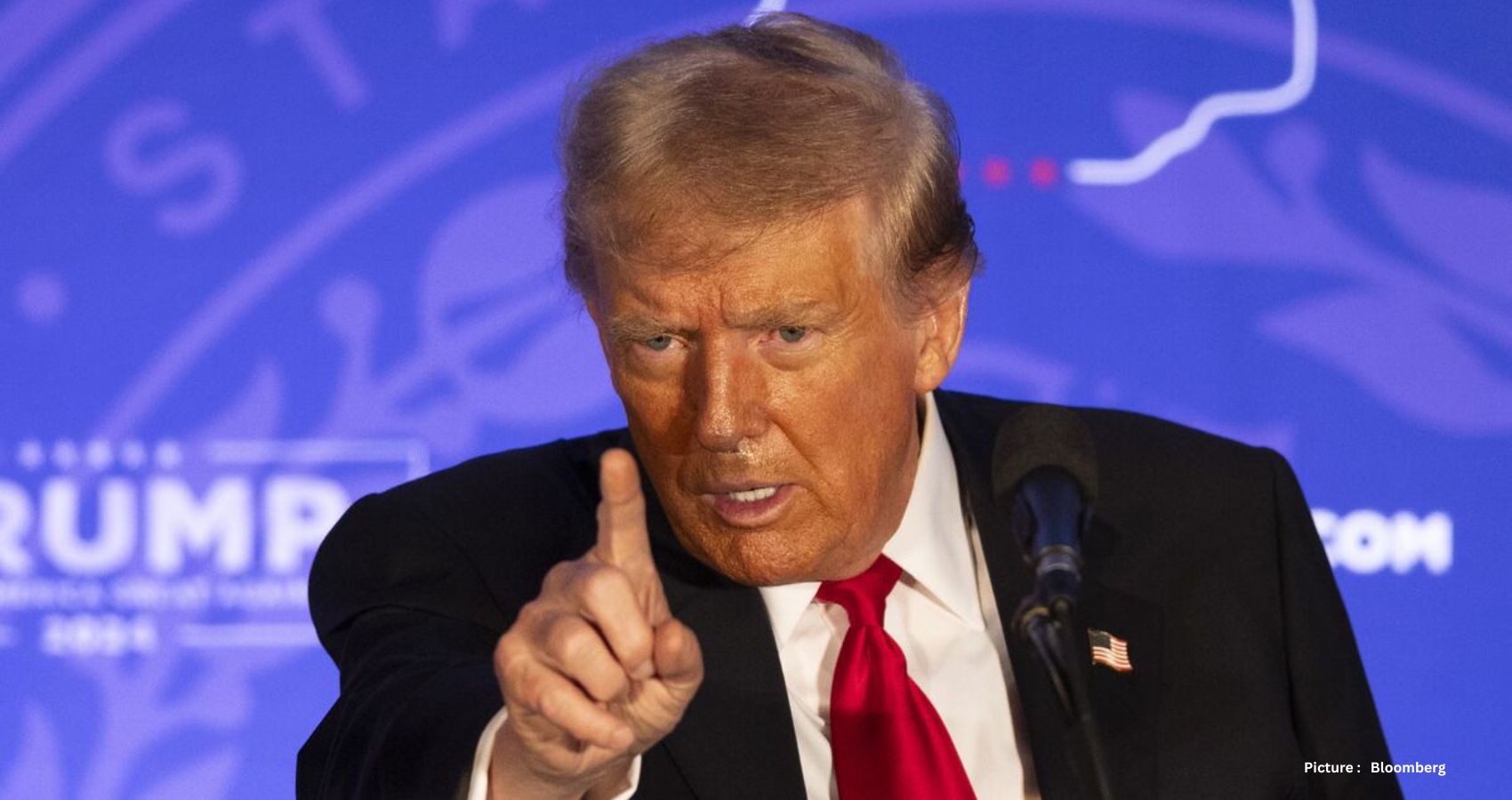Former President Trump has managed to sidestep numerous controversies that might have been detrimental to other political candidates. However, recent developments suggest that he may not be entirely impervious to the consequences of his actions, especially in the eyes of voters.
A new survey, released by Bloomberg and Morning Consult, indicates that the outcome of the four criminal trials Trump is currently embroiled in could dramatically influence his political future. According to the poll, a significant majority of voters in crucial swing states would be disinclined to support Trump if he were to be convicted of a criminal offense or sentenced to prison.
The poll, conducted in seven pivotal states including Arizona, Georgia, Michigan, Nevada, North Carolina, Pennsylvania, and Wisconsin, revealed that a conviction could sway the decisions of a substantial portion of voters, potentially impacting the outcome of the election. GOP strategist Doug Heye emphasized the significance of this, noting that a conviction could serve as a decisive factor in an election where either Trump or President Biden could emerge victorious.
The survey also highlighted a noteworthy shift among Trump’s own voter base. Approximately 20 percent of voters in the surveyed states who had previously supported Trump expressed reluctance to vote for him again if he were to face conviction. GOP strategist Dan Judy commented on this trend, suggesting that while Trump might still retain a significant portion of Republican support, any erosion of this base could significantly impact the election outcome.
However, it remains uncertain whether the polling figures accurately reflect potential outcomes in a general election. At present, in the absence of any criminal convictions, Trump maintains a lead of six points among registered voters in battleground states, as indicated by the Bloomberg poll.
Historically, dissatisfied voters have sometimes compromised their reservations and supported candidates who align most closely with their beliefs, regardless of misgivings. For instance, in 2016, despite controversies such as the release of the Access Hollywood tape, Trump managed to secure victory with the backing of his party faithful.
Despite facing four indictments comprising a total of 91 criminal charges last year, Trump’s grip on the Republican nomination appeared to strengthen, with his supporters rallying around him amidst allegations of unfair targeting.
While Trump has emerged victorious in the initial contests of this year’s primary process, a significant disparity exists between the sentiments of the GOP electorate and the broader public. A recent Economist/YouGov poll revealed that while Trump enjoys favorable ratings from 79 percent of Republicans, only 40 percent of the general public view him favorably.
Moreover, Trump faces relentless attacks from the Biden campaign and its supporters, who argue that his reelection would jeopardize democracy itself. Trump maintains his innocence regarding all charges against him, while his legal team continues to seek delays in proceedings.
Currently, Trump faces impending trials in New York, Georgia, and federal courts, with charges ranging from hush money payments to alleged conspiracies to overturn the 2020 election. The timing of these trials presents a challenge, particularly as Trump seeks to secure the GOP nomination and mount a reelection campaign.
Should Trump emerge victorious in the GOP primary cycle, he would be officially nominated at the Republican National Convention in mid-July. However, the possibility of a federal trial relating to events surrounding the 2020 election looms, pending court decisions regarding presidential immunity from prosecution.
Aside from the question of guilt or acquittal, Trump faces the practical dilemma of allocating his time between campaign efforts and legal defense. GOP strategist Dan Judy noted the inherent challenge in balancing these priorities, emphasizing the importance of time as a candidate’s most valuable resource.
Nonetheless, predicting Trump’s future remains uncertain, as his political trajectory has defied conventional wisdom time and again. Despite skepticism, observers acknowledge the absence of historical precedent to guide assessments of Trump’s prospects.
“In many ways, predicting Trump’s fate has been a futile endeavor,” Judy conceded. “There’s no precedent to rely on here, no past events to draw parallels from. It’s impossible to say for certain what lies ahead.”


